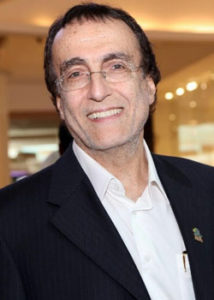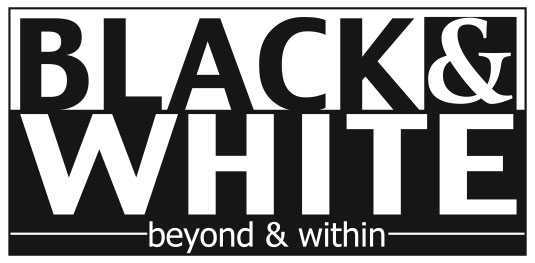
Philippe Georgiou
Management consultant, personal and professional coach
Mindfulness master instructor and practitioner
Sound therapy master healer and practitioner
Mentor and energy healer
Navigating in the unknown
With much uncertainty and ignorance still surrounding the knowledge about the disease, let alone what the future holds post-pandemic, the population at large is left to navigate in the unknown, in an overall atmosphere driven by anxiety, fear and apprehension.
Following the flurry of news about the virus, where it came from, how it spreads, what precautions to take, media drove public’s attention towards data and numbers, thus elevating the level of uncertainty, given the information kept, and still keeps changing.
No influence on flow of events
The entire buzz turned out to be pretty inconclusive, even absurd, when the vast majority of the population at large had no influence whatsoever either on the flow of events or its outcome.
Focus on what can be controlled
In the many online events I held, I kept highlighting that all what we can do about this unprecedented situation is to focus on what is under our control, which is our own selves.
Great opportunity
In fact, now is a great opportunity, one in a lifetime, to take stock of our life as it manifests today, built upon experience after experience of our past. Within the limits of our physical confinement, where do we take ourselves from here?
The 20-30-40 rule
What is in our hands right now is the ability to enhance ourselves, to evolve ourselves, to elevate ourselves at all levels. How do we get to have better physical fitness, better emotional balance, better mind strength, better intellectual baggage, and better spiritual connectivity?
I recommend what I call the 20-30-40 rule. On a daily basis, spend 20 minutes on physical fitness. One can simply stretch the body, go for a brisk walk when and where safe and possible, or do mild aerobic exercises at home. Spend 30 minutes on me-time. Find a quiet spot, relax alone in stillness and silence, read a pleasant and optimistic book, light up a candle, burn some incense, pray, meditate, whatever puts you in touch with your inner self and gives you moments of joy and meaning. Spend 40 minutes educating yourself on a subject totally away from current circumstances and worries. Read about the latest astronomical discoveries, learn about nature and animals, and acquire a new skill.
Only the essentials
One of the important findings which were unveiled during our long confinement is that all we need in fact are the essentials. Although we miss outings, vacations and parties, we also learned to appreciate the simplicity of life.
Choose to live simply
We choose the life we want. Learning from this current experience, we can choose to live a simple life going forward. What does a simple life mean to us?
Create a meaningful life
Choosing a minimalistic life and opting for simplification create a life filled with meaning; a life lived on our own terms, not as dictated by competitive behaviour and not driven by an insatiable appetite for more. It’s not just about giving up our possessions. It helps create the time and space to pursue our true interests and passions.
Eliminate the unwanted
Examples include reducing our possessions, being mindful of new purchases, limiting our time on social media and smart phones, stopping attending social occasions we’re indifferent about and eliminating multitasking. Doing some or all of these things can bring us great benefits and happiness.
Living a life of purpose
Some of the many benefits of a simple life include getting to know more about ourselves, expressing gratitude for what we have and who we are, better understanding of our passions and purpose. Living a life of purpose is a happy life.
Remove the distractions
Another benefit is the improvement of our relationships. When we are not distracting ourselves with television, shopping for another gadget, or filling our diary with must-do events, we’re more likely to focus on relationships. If we reduce or remove these distractions, we free up more time to spend with genuine friends and come closer to our family.
Go for the ‘free’ stuff!
Simple living also obviously means less financial stress. The disparity between what we buy and what we need leads to huge overconsumption. Voluntary simplicity is a lifestyle that minimises consumption and the pursuit of wealth and material goods. Let’s remember that meditation, prayer, connecting with nature, mindfulness is all free.
Develop a simplistic lifestyle
Scientific research has found a link between valuing possessions and money on one hand and poor physical health on the other. This may result in over-eating and less desire for exercise and other personal development aspects. Developing a more simplistic lifestyle often means less stress and increased rest.
Reduce clutter, improve concentration
When we adopt a simple lifestyle and stop multitasking, our focus and attention to the thoughts we have and things we do are significantly increased. As we simplify our life and remove distractions, we create space to breathe and focus better on what remains. In fact, the physical reduction of clutter in our home has been proven to boost concentration.
Let’s grab this rare chance
While there’s no doubt frustration and anxiety have a cumulative impact on us the longer we are confined, and while the definition of the “future normal” causes more apprehension with regards our personal lifestyle, our relationships, jobs and movement, we still have a great opportunity available to all of us: to focus on ourselves, a rare chance we would not otherwise have had in our busy life.
Time to ask valid questions
Let us take this uniquely exceptional time to better understand our life so far and where we stand today, and ask ourselves the simple questions: “What do I need to stop thinking and doing?” “What do I need to start thinking and doing?” “What do I need to think more and do more of?
Email: [email protected]
Ph: +968 99825885

0 Comments